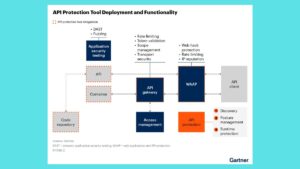HRTech: Imagining the Future of Human Resources
The landscape of human resources (HR) is rapidly evolving, driven by technological advancements and changing workforce dynamics. As we look to the future, HR technology (HRTech) is set to transform how organizations manage talent, engage employees, and drive business success. This blog explores the emerging trends and innovations in HRTech and imagines the future of HR in the years to come.
1. The Rise of HR Technology
HRTech encompasses a wide range of tools and software designed to improve HR processes, enhance employee experience, and streamline operations. From recruitment and onboarding to performance management and employee engagement, technology is reshaping every aspect of HR. The global HRTech market is expected to grow significantly, driven by the demand for automation, data analytics, and remote work solutions.
2. Key Trends Shaping the Future of HR
a. Artificial Intelligence and Machine Learning
AI and machine learning are poised to revolutionize HR by automating repetitive tasks, analyzing vast amounts of data, and providing actionable insights. In the future, AI-powered recruitment tools will streamline the hiring process by screening resumes, assessing candidate fit, and even conducting initial interviews through chatbots. This will allow HR professionals to focus on strategic initiatives and build more diverse and inclusive teams.
b. Data-Driven Decision Making
The future of HR will be heavily influenced by data analytics. By leveraging advanced analytics tools, organizations will gain deeper insights into employee performance, engagement, and retention. Predictive analytics will enable HR leaders to anticipate workforce trends, identify potential issues before they arise, and make data-informed decisions that drive organizational success.
c. Employee Experience Platforms
The employee experience (EX) will take center stage in the future of HR. Organizations will increasingly invest in integrated platforms that enhance every aspect of the employee journey, from recruitment to retirement. These platforms will provide personalized experiences, such as tailored learning and development programs, real-time feedback, and wellness resources. By prioritizing EX, companies can improve employee satisfaction, engagement, and retention.
d. Remote Work and Flexibility
The COVID-19 pandemic accelerated the shift toward remote work, and this trend is likely to continue. The future of HR will involve creating flexible work environments that accommodate remote and hybrid models. HRTech solutions will play a crucial role in managing remote teams, facilitating communication, and ensuring that employees remain connected and engaged, regardless of their location.
e. Continuous Learning and Development
As the pace of change accelerates, continuous learning will become essential for organizations to remain competitive. The future of HR will focus on creating a culture of lifelong learning, with personalized training programs that cater to individual career aspirations and skill development. HRTech will support this shift by providing access to online courses, virtual training sessions, and AI-driven learning platforms that adapt to employees’ needs.
3. The Role of Virtual and Augmented Reality
Virtual reality (VR) and augmented reality (AR) technologies will play a significant role in the future of HR. These immersive technologies can enhance training and onboarding experiences by simulating real-world scenarios. For instance, VR can be used for safety training or soft skills development, allowing employees to practice in a risk-free environment. AR can support remote collaboration, enabling teams to visualize and interact with data and projects in real-time, regardless of their physical location.
4. Diversity, Equity, and Inclusion (DEI)
The future of HR will prioritize diversity, equity, and inclusion (DEI) as organizations recognize the importance of building diverse teams. HRTech solutions will help organizations eliminate bias in recruitment and performance evaluations, ensuring a fair and equitable workplace. By leveraging data analytics, organizations can track DEI metrics and identify areas for improvement, fostering a culture of belonging and respect.
5. Ethical Considerations in HRTech
As HRTech continues to evolve, ethical considerations will become increasingly important. Organizations must navigate the complexities of data privacy, bias in AI algorithms, and the implications of employee monitoring. HR leaders will need to establish ethical guidelines and best practices to ensure that technology is used responsibly and transparently, protecting employee rights and fostering trust.
6. The Future Workforce: Human-Machine Collaboration
The future of HR will be defined by the collaboration between humans and machines. While technology will automate routine tasks and provide valuable insights, the human element will remain crucial. HR professionals will need to focus on building strong relationships, fostering a positive organizational culture, and developing employees’ soft skills. This human-centric approach will ensure that technology enhances the workforce rather than replacing it.
Conclusion
The future of HR is bright, driven by innovation, technology, and a renewed focus on the employee experience. HRTech is set to transform how organizations attract, retain, and develop talent, leading to more agile, engaged, and productive workforces. As we imagine this future, it’s essential for HR leaders to embrace technology, prioritize ethical considerations, and maintain the human touch that defines successful organizations.
By adapting to the evolving landscape of HRTech, organizations can position themselves for success in the dynamic world of work, creating environments where employees thrive and contribute to their fullest potential. The future of HR is not just about technology; it’s about empowering people and driving organizational excellence.





